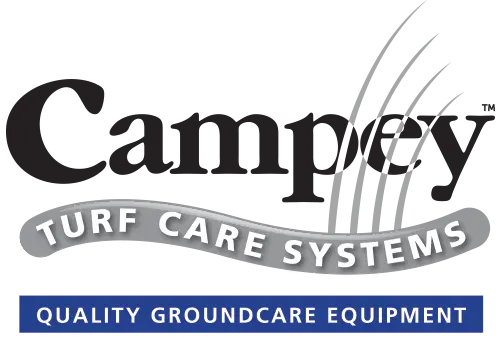The importance of continuous personal and professional development
Phil Helmn MG | General Manager, Sports Turf & Grounds | Goodwood
Personal development is highly beneficial to both the individual and the organisation on many levels.
It is a lifelong process that, through analysing and assessing your personal characteristics and qualities, helps you consider your aims in life. By creating a tailor‑made plan, highly personal to you, you are able to achieve positive and effective outcomes in your personal life. Ultimately, as you achieve greater self‑awareness and knowledge of yourself, your empowerment and effectiveness for your organisation improves.
Key benefits of personal development to the organisation are:
// Greater self‑awareness (able to experience ourselves as individuals)
// Sense of direction and focus (helps you to prioritise life)
// Improved effectiveness (helps you deliver results that matter)
// Motivation and greater resilience (ability to deal with life’s stresses and strains)
// More fulfilling relationships (improved emotional and physical well‑being)
Professional development – as opposed to personal development – on the other hand, centres solely on direct work‑based improvements.
Professional development ensures you continue to be competent in your profession and should continue throughout your career. The process of tracking and documenting these skills, knowledge and experience will help you to stay relevant and updated. Professional development is improved by attending conferences and workshops, maintaining academic credentials, further education, participating in professional organisations and informally networking with other professionals across your industry.
The key benefits of professional development to the organisation are:
// Improved knowledge and credibility (trustworthiness in decisions you make)
// Enhanced existing skills and efficiencies (increased visibility and perceived value)
// Job satisfaction and retention (has a positive impact on customer service)
// Up to date and higher confidence in market (can aid increased revenue)
// Motivation (increased productivity)
The use of reflective practice in personal and professional development
Reflective practice is the action of thinking about or reflecting on your experiences. It is the ability to look closely at a past situation, evaluate what happened and decide what you would do differently next time in order to achieve a more positive outcome. Fundamentally, it is the process of learning from experience, rather than more formal academic learning or knowledge transfer. It is the ability to bring together theory and practice within the context of your own work situations and is a powerful tool towards personal and professional development.
A person who reflects throughout his or her career is not just re‑living past events, but is taking an in‑depth, conscious look at their own emotions, feelings, actions and responses to these situations. It is this realisation and awareness of individual emotions that helps build personal information to add to his or her existing knowledge base and reach a higher level of understanding. In theory, it is this acquired knowledge that can then help the individual in future similar situations to manoeuvre themselves and influence others in order to gain better and more positive outcomes.
Benefits of using personal reflective practice include:
// Promotion of life‑long learning (enhances the knowledge of the world around us)
// Identification of personal strengths (gaining confidence and self‑assurance)
// Realisation of personal weaknesses (understanding what areas require focus)
// Identification of educational needs (improved understanding of your path)
// Acquisition of new knowledge and skills (stimulates innovation and growth)
The use of reflective practice in professional development is vital in order to better serve not only yourself but the organisation too. By reflecting on situations and interactions with colleagues both above and below helps in achieving more successful outcomes through greater emotional intelligence. The ability to learn from past experiences, modify behaviour and adapt new strategies (don’t repeat mistakes) not only increases the potential for success but builds self‑confidence and that of the people around you.
Benefits of using professional reflective practice include:
// Strengthen emotional intelligence (ability to control negative impulsive feelings)
// Builds integrity and core values (respect is gained through truthfulness and honesty)
// Greater confidence with colleagues (ability to overcome fear in decision processes)
// Better understanding of others (improved human connection and empathy)
// Improved engagement in work processes (greater enthusiasm and greater growth)
What are the practical methods (or tools) of measuring reflective practice in the work place?
Before we can begin, it is important to create the right environment for reflective practice in order for the correct processes to be useful.
Key operational ways to support this type of learning are:
// Build reflection into your individual learning practices.
// Become open to your experiences.
// Keep an eye out for the experiences that lead to the most powerful learning.
// Create a structure for reflection.
// Learn from other professionals.
There are many benefits for reflective practice, as we have discussed earlier, but most follow a similar principle of self‑awareness of a situation and how it could have been dealt with better. The Gibbs reflective cycle (developed in 1995) requires the individual to search their feelings, as well as their practical involvement, in order to reflect on possible better outcomes. It requires deep thought and through mental conclusions, drives possible new actions to resolve the same issues if they arise again. In much the same way, so too does the Kolb method of reflection (1984). It challenges the individual to search for a more conclusive way of tackling the same problem in different ways to achieve better outcomes.
At Goodwood we adopt many other approaches of reflective practice and learning. These take the form of both personal and professional and include appraisals (both self and peer), 360‑degree feedback, SMART goal setting with believable paths, individual and group reviews, individual performance focus points and individual and group learning activities.
Currently, methods used in our department at Goodwood are:
// Insights colour personality test (during our interview process)
// W3 at each head of department meeting (every month with group)
// One‑to‑one monthly appraisals (once every two months on all levels)
// Performance/progress annual reviews (annually set and tracked throughout the year)
// Trait Emotional Intelligence interview process (Thomas) (during the interview process)
All have a place in the organisation in order for us to create alternative strategies, open opportunities of influence and help us learn so we can deliver success in the future.


